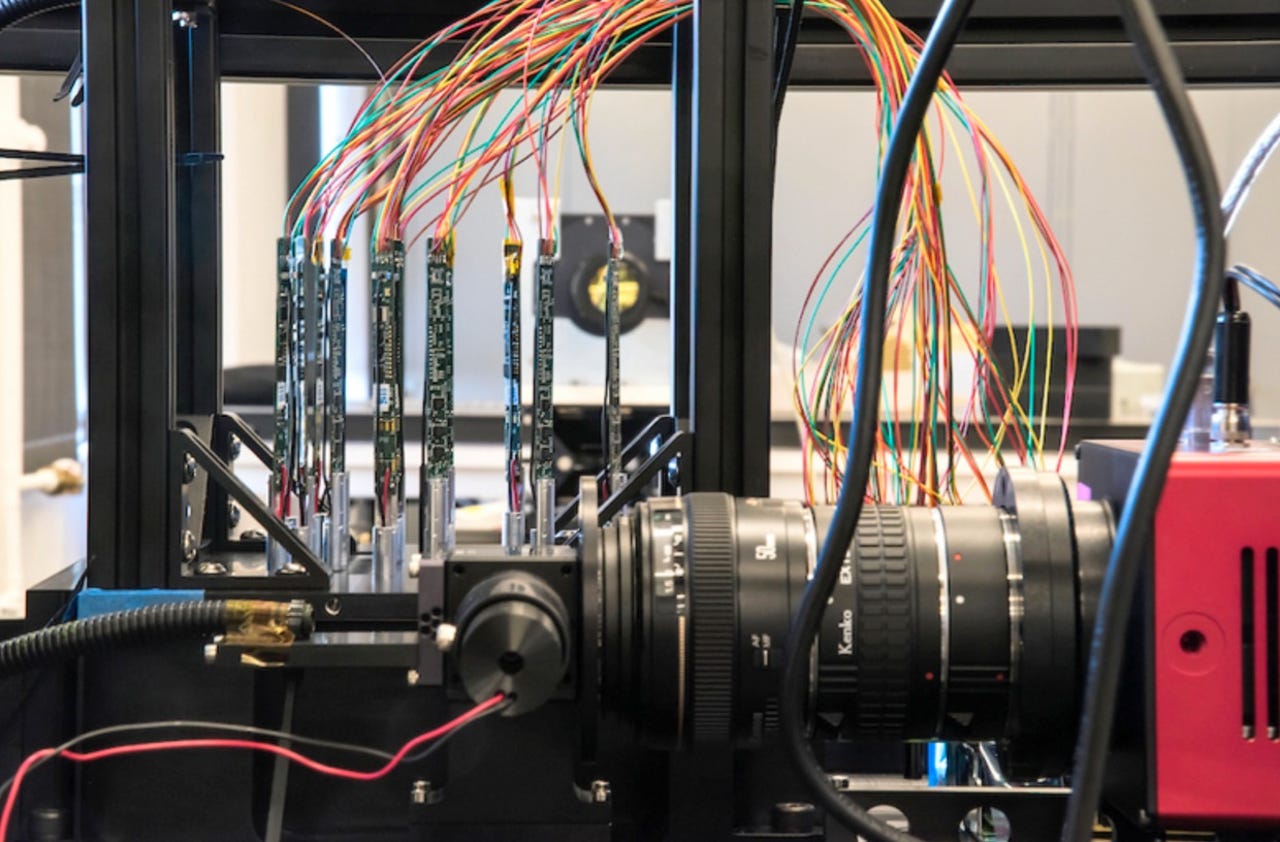5,000 robots set to map millions of galaxies in 3D


Thousands of robots are soon to embark on a project to create 3D maps of galaxies to find out how dark energies affect space.
The Dark Energy Spectroscopic Instrument (DESI) project, of which members include Berkeley, the University of California, Yale, and Durham University, has received approval from the US Department of Energy to move forward with the creation of 5,000 robots that will be launched from Earth in 2019.
According to Lawrence Berkeley National Laboratory, which announced the scheme, each finger-width, 10-inch long cylindrical robot will point fiber-optic cables at galaxies, stars, and quasars. Ten spectrographs designed to measure incoming light from the fibers will also be developed.
"This light will tell us about the properties of the galaxies, stars, and quasars, and most importantly, how quickly they are moving away from us -- light from objects that are moving away from us is shifted to redder wavelengths ("redshift")," the researchers say. "These details can help us learn more about the nature of dark energy that is driving the accelerating expansion of the universe."
The lab says that DESI will provide "a deep look back in time, up to 11 billion years ago".
During the five-year mission, the robots will cycle through target objects several times each hour. The robots will map out roughly one-third of the sky, and by gathering information on clusters and patterns, scientists involved in the project hope to better understand galaxy evolution, dark matter, and energies that have a hand in shaping galaxies.
"The DESI map of galaxies will reveal patterns that result from the interplay of pressure and gravity in the first 400,000 years after the Big Bang," said Daniel Eisenstein of Harvard University, a DESI spokesperson. "We'll be using these subtle fingerprints to study the expansion history of the universe."
Now approval has been granted, so six large lenses worth approximately $1 million each and measuring up to 1.1 meters in diameter will be coated with a new antireflective coating and fixed to become an optical corrector for use by DESI.
A prototype dubbed ProtoDESI is currently installed at the Mayall Telescope in Arizona and awaiting a two-month trial. The pilot will use four small robots to test out the DESI fiber-positioning system and other components.
DESI includes roughly 300 scientists from approximately 45 institutions worldwide.